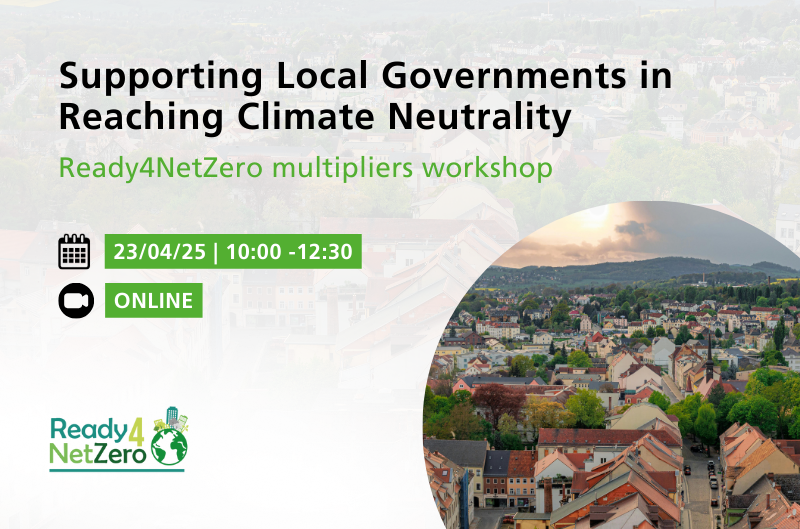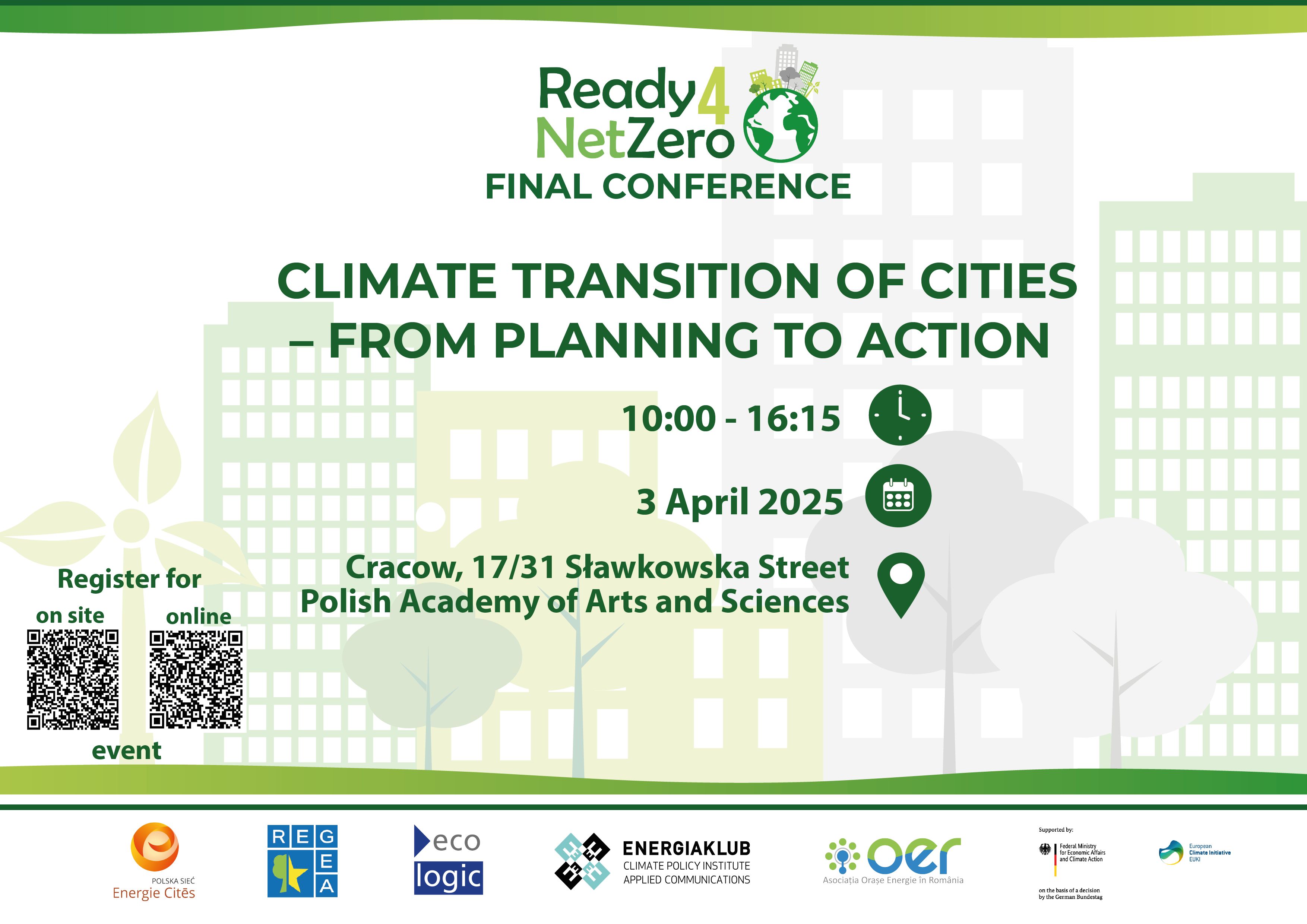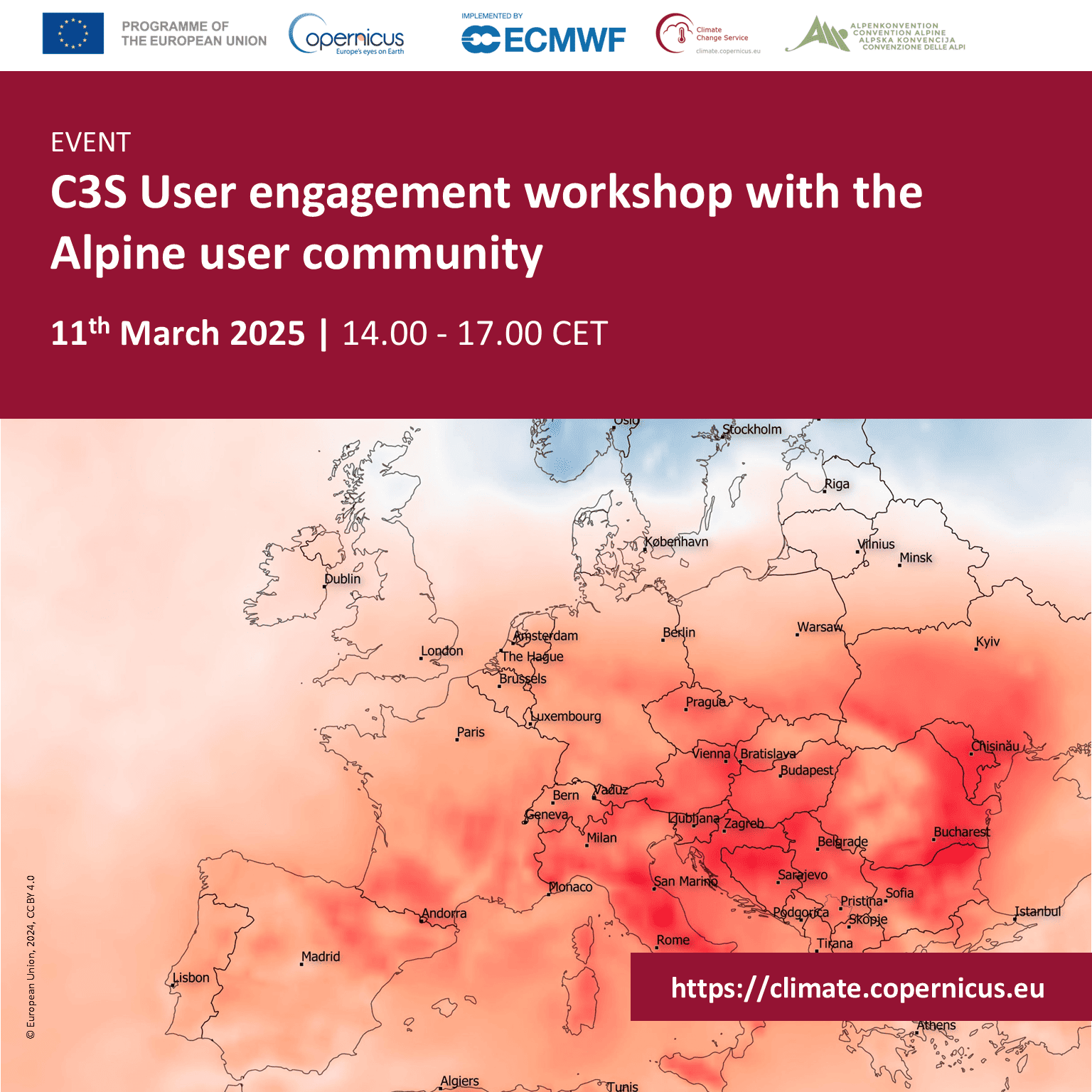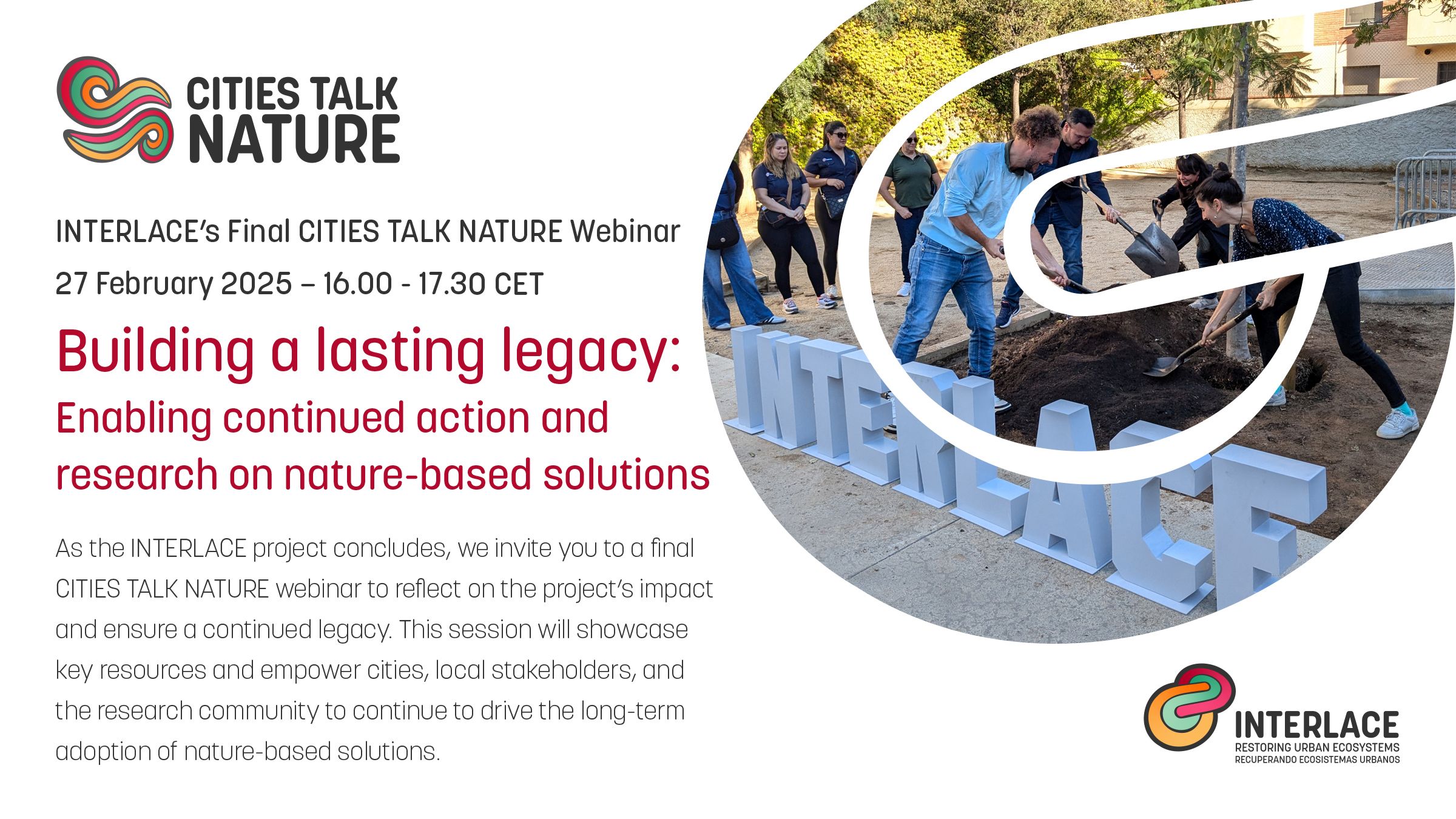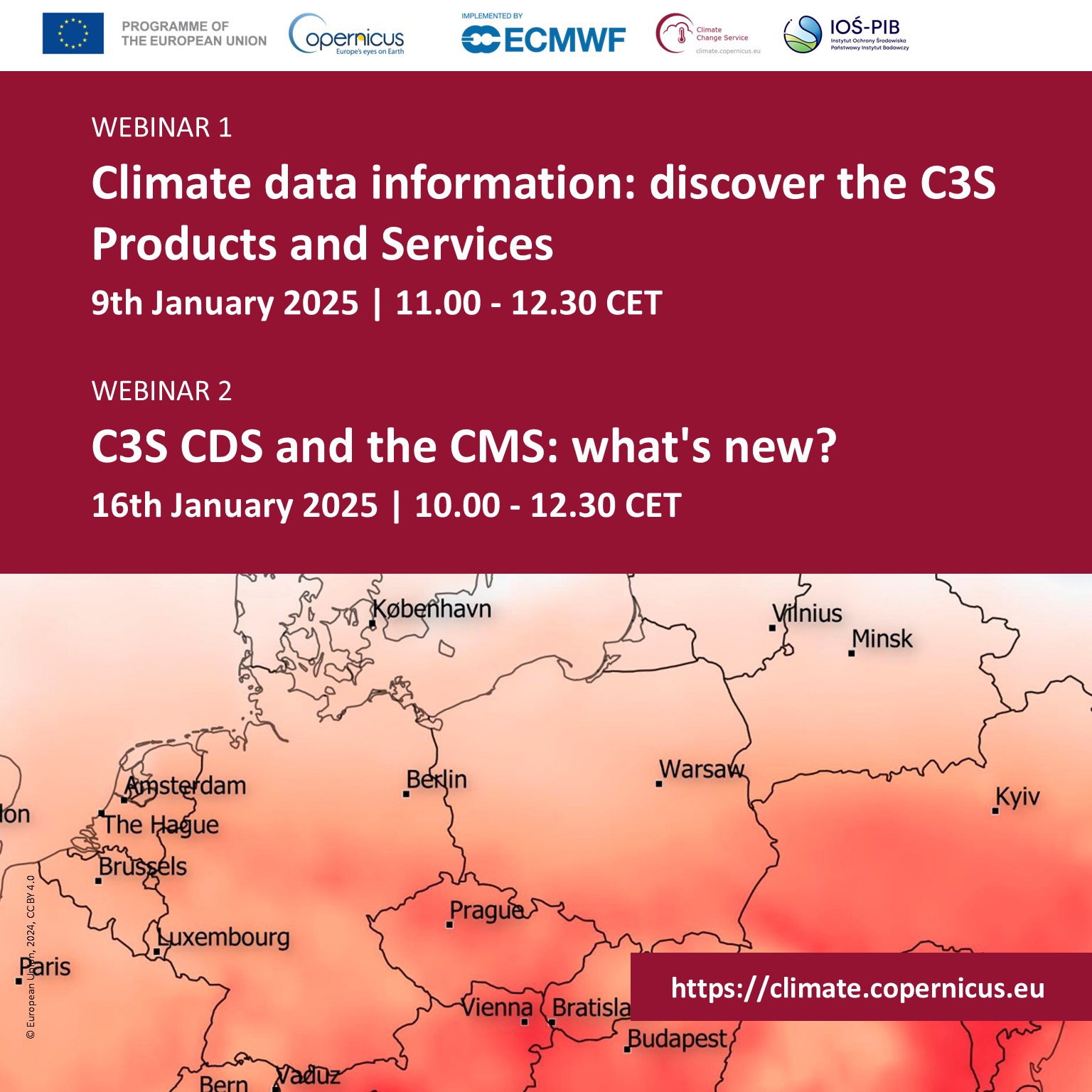Event:Digital Event
Event:Digital Event
Tracking the Transition to a Clean, Competitive and Fair EU Future
Launch of the 3rd Assessment by the European Climate Neutrality Observatory
online
Event:Digital Event
Mapping Policies and Private Sector Initiatives for a Nature-positive Economy
Insights from the GoNP! project
online
Event:Digital Event
Perspectives on a Purchasing Programme for CRCF Permanent Carbon Removal Credits
online and Brussels,
Belgium
Event:Digital Event
Supporting Local Governments in Reaching Climate Neutrality
Ready4NetZero multipliers workshop
online
Event:Conference
Climate Transition of Cities – From Planning to Action
Ready4NetZero Final Conference
online and Kraków,
Poland
Event:Digital Event
Event:Digital Event
Event:Digital Event
Event:Digital Event
Establishment of an Environmental Information and Classification System for Pharmaceuticals in Germany
Final project presentation
Online
Event:Digital Event
Building a Lasting Legacy
Enabling continued action and research on nature-based solutions
online
Event:Digital Event
Ecosystem-Based Adaptation for Coastal Regions Worldwide (TROPICAL ADAPT)
Virtual Scoping Workshop
online
Event:Digital Event
Event:Digital Event
Climate Data Information in Poland – Copernicus Webinars
C3S products and services
-
online

